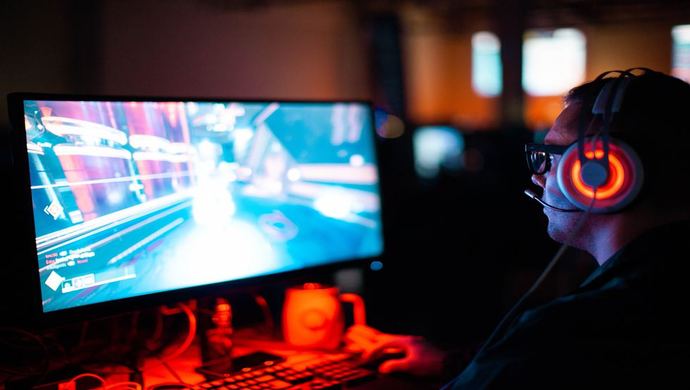Most modern games have in-game virtual currency models that made the transition to cryptocurrencies much easier

Stakeholders in the gaming industry are known for having an appetite for the latest technology. And any user that has played in an immersive gaming world has used virtual currency.
Blockchain and gaming are two industries that can mutually benefit from a collision.
For instance, while blockchain’s immutable ledger can supply tools that enable better monetisation for both game players and game developers. The demand for virtual assets built on blockchain will create a use case that will drive mass adoption of blockchain technology.
Furthermore, a majority of industry leaders agree that there is great promise in the fusion of the two.
In a special report by Zage on the future of blockchain, Miguel Palencia the chief information officer at Qtum Foundation says that “gaming will be one of those” industries set to have the biggest opportunities for blockchain technology in the next 5 years.
Here’s a fresh look at some of the possibilities that could occur through a fusion of blockchain and gaming.
Improved user experience and compelling gameplay
Virtual reality is increasingly becoming the next big thing in gaming. Various reports indicate that since the release of the first Oculus and Samsung VR prototypes in 2015, the global revenue of Virtual Reality gear in gaming has reached a whopping USD$4.3 billion.
Mathew Campbell the CEO of Loom Network, believes that “blockchain opens up completely new and unique capabilities for true ownership of digital assets, provably scarce items, eternal worlds/immortal characters and multi-game spanning universes.” All these possibilities will create an engaging and immersive gaming experience like never before.
Also Read: Trust : an essential component in the success of investment oriented blockchain projects
Add scarce and virtual collectables to the whole experience, and you give gamers endless possibilities that make the gaming experience worthwhile.
Furthermore, developers could create games that operate similar to Reddit’s Karma scoreboard and have players earn points, downvote or upvote other players.
Better monetisation
Mike Brusov, co-founder and CEO at Cindicator, believes that “in the next five years gaming will become an even bigger business.” Given that the industry is expected to be worth more than US$90 billion by 2020, there is no better time to introduce better monetisation tools for developers and gamers.
Brusov believes that gaming is among the industries that are most likely to put blockchain in use “as game assets become an increasingly important source of revenue.”
From as early as 2014, blockchain-enabled gaming apps like HunterCoin and CryptoKitties have proven that even basic level crypto-collectables can be used to express value within a game and improve opportunities for revenue both for the developers and the gamers.
Blockchain can also enable a trustless exchange of in-game items (such as virtual outfits) through smart contracts to further enable the industry to become lucrative. Already, reports are showing that trading virtual items in video games is estimated to be a US$50 billion industry.
Steve Bannon, a political strategist, and former investment banker are arguably one of the first individuals to exploit the lucrative upside of in-game assets and probably the first-ever crypto miner.
Also Read: A blockchain perspective: the irony of financial inclusion
It is reported that Bannon would employ an army of “low-wage Chinese workers” to play World of Warcraft to earn in-game gold.
Bannon leveraged multiple accounts to game the system and make millions off selling virtual goods in World of Warcraft for real money.
–
Editor’s note: e27 publishes relevant guest contributions from the community. Share your honest opinions and expert knowledge by submitting your content here.
Join our e27 Telegram group here, or our e27 contributor Facebook page here.
Image Credit: Sean Do
The post What experts are saying about blockchain and gaming appeared first on e27.